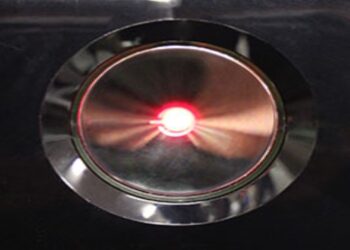Wait, Am I Smelling Smoke? Or Is My Brain Playing Tricks? Decoding Phantom Burning Smells
Ever catch a burning smell, like toast on fire or a faint plastic scent, only to find nothing burning? You aren’t alone. No need to worry, your house isn’t on fire. This phenomenon, called phantom smells, is more common than you think and rarely dangerous.
So, what’s happening when you smell a fire nobody else notices? Let’s explore phantom smells or phantosmia.
Phantosmia: The Mystery of the Imaginary Odor
Phantosmia means your brain is misreading signals and creating smells that don’t exist. It’s like your nose has a glitch. Phantosmia occurs “when a person smells something that is not actually there.” Your nose is playing tricks, and these smells aren’t nice.
What smells are we talking about? You might hear of burnt toast (a classic), metallic tangs, or chemicals. Different people report various scents, making it both subjective and strange. Phantosmia is also called an olfactory hallucination, great for trivia night.
Unmasking the Culprits: What Causes These Phantom Smells?
What triggers phantom smells? The causes vary widely, from benign issues to serious health concerns. Here’s a breakdown:
Nasal and Sinus Shenanigans
Sometimes, the issue lies in your nose or sinuses. These conditions can irritate olfactory nerves, leading to phantom smells. It’s like static on a radio – it distorts signals. An upper respiratory infection can trigger phantosmia. Even a minor head injury can disrupt your sense of smell.
Neurological Nuances
Our brains are complex. Smell connects with neural pathways. Neurological issues can manifest as phantom smells. Upper respiratory infections and head injuries can impact smell-related brain function too.
Infections and Olfactory Oddities
Infections, especially in the upper respiratory system, can cause phantom smells. They can irritate the olfactory nerve, sending false alarms. Your nose reacts as if under assault.
The Mystery of Other Medical Conditions
Aging affects our sense of smell and can cause phantosmia. Phantom smells may also signal serious conditions. Endocrine disorders, like hypothyroidism, have been linked to olfactory hallucinations, showing our senses connect to overall health.
Environmental Exposures: When Toxins Taunt the Nose
Environmental factors can play a role. Exposure to substances like mercury or lead may damage your nervous system and cause phantosmia. Awareness of environmental toxins is vital.
Mental Health and Olfactory Hallucinations
The mind-body link is strong. Phantom smells may arise from mental health issues like depression or schizophrenia. If you have these smells with other mental health symptoms, consult a healthcare professional.
Aging and Other Vexing Variables
Aging often causes smell changes. However, other unclear factors may play a role in phantom smells. Sometimes the cause remains a mystery, adding to phantosmia’s intrigue.
Phantom Smell SOS: What Should You Do?
You smell burnt toast that doesn’t exist. What’s next? Stay calm but don’t ignore it. Here’s what to do:
Doctor, Doctor!
If phantom smells last longer than three weeks, call your doctor. Do not ignore any changes in your senses. A professional can help find the cause and rule out serious issues.
Describe the Smell in Detail
When talking to your doctor, be specific. Describe the phantom scent: Is it burnt? Metallic? Chemical? Share any other symptoms you experience, even if unrelated. This info can help identify the issue.
Decoding the Burning Smell: Real-World Culprits
Sometimes, what you smell may be an actual source, just not a fire. Here are everyday reasons burning smells may arise:
Electrical Gremlins: The Burning Plastic Smell
Burning plastic or rubber indicates electrical trouble. A small electrical fire within walls emits this odor. It warns of overheating wires or a short circuit. Do not ignore this sign.
Cigarette Smoke Mimickers: Beyond Tobacco
Ever sense something like cigarette smoke in the air? It may not be secondhand smoke. Burning wood, incense, food cooking slightly too long, and even old tobacco smoke can create similar scents. It’s olfactory déjà vu but not always from cigarettes.
Stress Sweat: The Leek-y Smell of Anxiety?
Stress can alter body functions. Stress sweat may differ from exercise sweat. This mix with skin bacteria creates a stronger smell. Some people compare it to stir-fried leeks. If you sense an onion-like odor with stress, check your sweat!
Electrical Fire Safety: Smell and Sensibility
Electrical issues are critical when burning smells arise. Here are tips on electrical fire safety.
The Smell Signal
The burning plastic smell is a sign of an electrical fire. Don’t dismiss it as imagination.
Beyond the Smell: Other Warning Signs
Smell isn’t the only cue. Watch for these other signs of electrical fire:
- Sizzling or popping sounds from outlets or appliances.
- Flickering lights where you smell burning.
- Charred outlets or switches – visual signs of heat damage.
- Circuit breakers tripping often – indicating overload.
- Visible sparks or flames – an emergency.
- Melted plastic around outlets or appliances.
Act Fast: What to Do
If you suspect an electrical fire from smell or these signs, act quickly:
- Safety First: If you smell burning near outlets or appliances, cut the power immediately. Find your panel and flip the relevant circuit breaker.
- Unplug and Isolate: Unplug any devices in the affected area.
- Call the Pros: Contact an electrician ASAP. Don’t fix electrical issues unless you are a trained expert.
Burnt Toast and Strokes: Separating Fact from Fiction
You’ve heard burnt toast signals a stroke. Let’s clarify:
Smelling burnt toast is
Many believe that smelling something burning indicates a stroke, but there’s no solid evidence for this. Focus on real signs like sudden weakness, trouble speaking, and changes in vision. Call emergency services if you think someone is having a stroke.
Brain Tumors and Olfactory Sensations: When to Seek Further Investigation
A brain tumor, especially in the temporal lobe, can cause phantom smells. This symptom is rare and often means little alone. Phantom smells are one possible symptom among many. It’s wise to know the full range of symptoms.
Red Flags: Symptoms to Watch Out For
If you suspect a brain tumor, other symptoms matter. Severe headaches, seizures, vision problems, and memory issues are significant red flags. If you notice new or worsening symptoms, seek medical help right away. Check resources like What Are The Red Flags For Brain Tumors? and Mayo Clinic’s page on brain tumor symptoms.
Phantom Smells as One Piece of the Puzzle
A brain tumor in the temporal lobe can lead to odd smells and other symptoms. It’s the combination of symptoms that raises concern, not just phantom smells. If you experience persistent phantom smells
Spiritual Scents: When Smells Get Supernatural
Cultural beliefs sometimes attribute unexplained smells to supernatural causes. “In many cultures, ill will can manifest as a bad odor.” These interpretations go beyond science. They are part of many people’s understanding. However, it’s crucial to seek medical advice to rule out health issues first.
Anxiety, Stress, and the Olfactory System: A Vicious Cycle?
Anxiety and stress can affect the body in unexpected ways. Phantom smells can occur due to these conditions. “Anxiety and chronic stress cause chemical changes that may create phantom smells.” Research continues on how this happens, but stress likely overstimulates our senses.
“The stress response may hyper-stimulate smell and taste receptors, causing unusual tastes and smells.” This heightened sensitivity might allow perception of non-existent smells. For more information, visit MedicineNet on whether anxiety can cause phantom smells.
The 3-3-3 Rule: Grounding Yourself in the Present
If anxiety influences your phantom smells, grounding techniques can help. “The 3-3-3 rule is a way to manage anxiety by focusing on right now.” Here’s how it works:
- Look: Find three things you see.
- Listen: Identify three sounds around you.
- Move: wiggle three body parts, like fingers or toes.
This exercise helps bring focus back to the present and lowers tension.
House Smells Like Burning But No Fire? Practical Troubleshooting
You smell something burning in your house but see no fire. What could be causing this? Let’s explore possibilities.
Possible Culprits in Your Home
“A burning smell without flames could mean electrical issues, broken appliances, or dust buildup in your HVAC system.” Here are common culprits:
- Electrical Issues: Electrical problems are a frequent cause.
- Malfunctioning Appliances: Overheating appliances can emit burning odors.
- HVAC System Dust: Dust in HVAC can burn off when active, causing a smell.
Action Plan: Investigate and Address
If you notice that phantom burning smell at home, follow these steps:
- Investigate Safely: Check for signs of fire or smoke. Don’t put yourself in harm’s way.
- Appliance Check: Unplug any appliances you suspect. Let them cool down and check for odors.
- Electrical Inspection: Look for discoloration or odors from outlets or switches without touching anything.
- Contact a Professional: If unsure or suspect an electrical issue, call an expert for help. It’s safer to check potential fire hazards.
Phantom burning smells can confuse and disturb. While usually benign and linked to phantosmia, it’s essential to check for medical or environmental causes first. By being informed and acting wisely, you can face the mystery of phantom burning smells and regain peace of mind.











